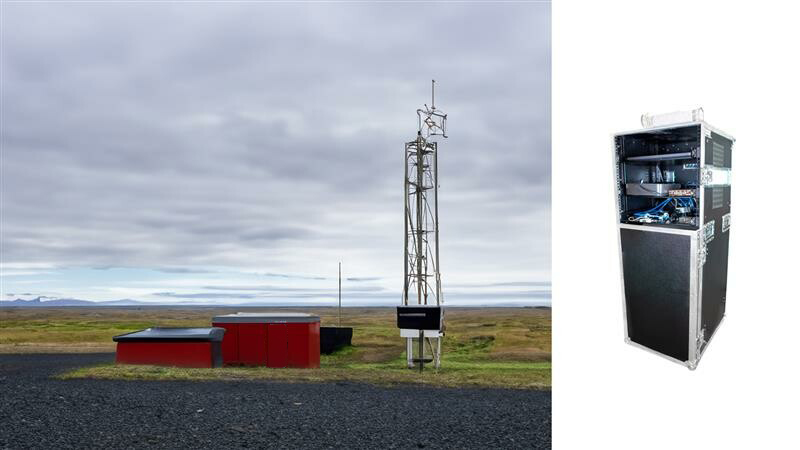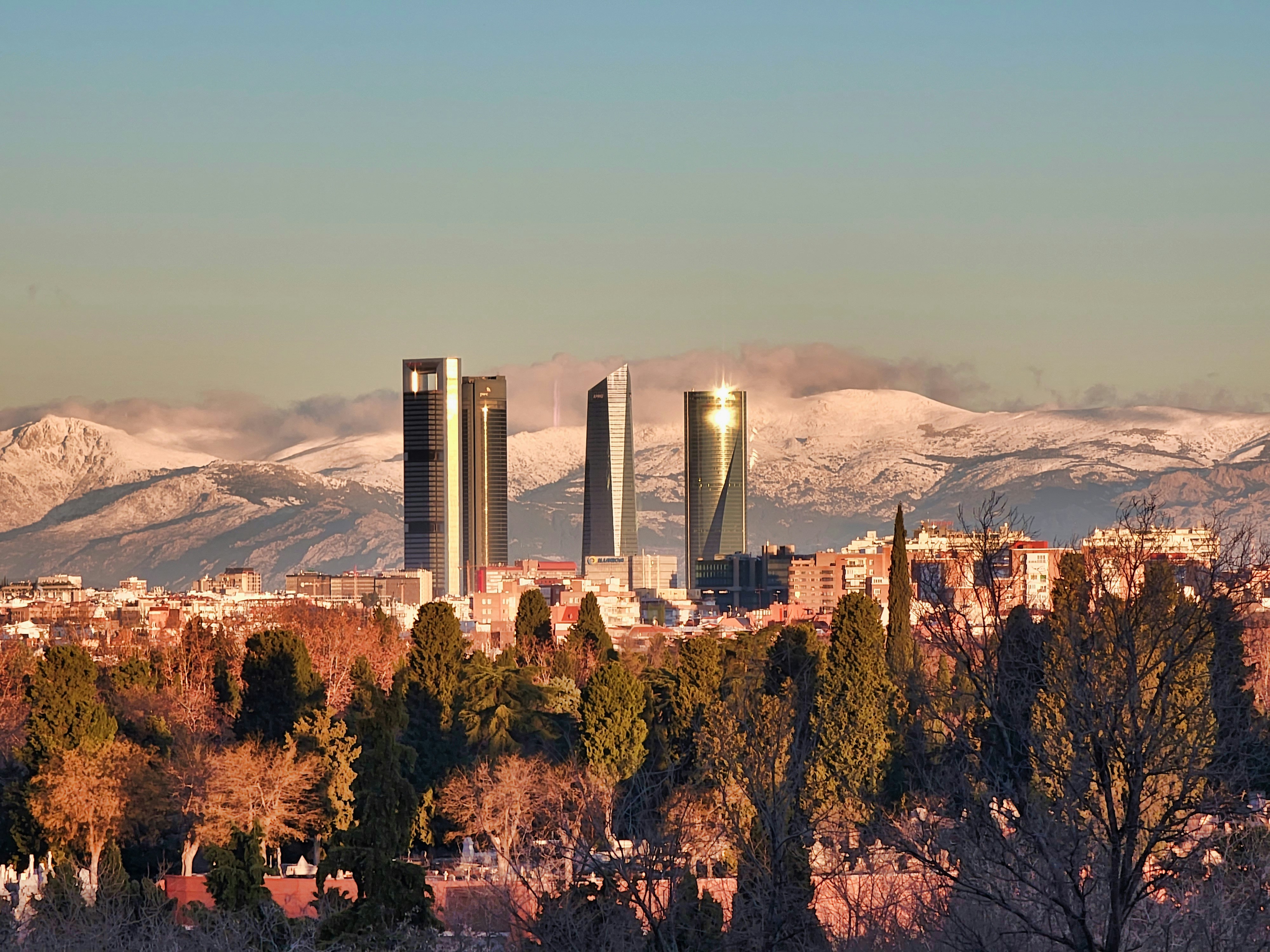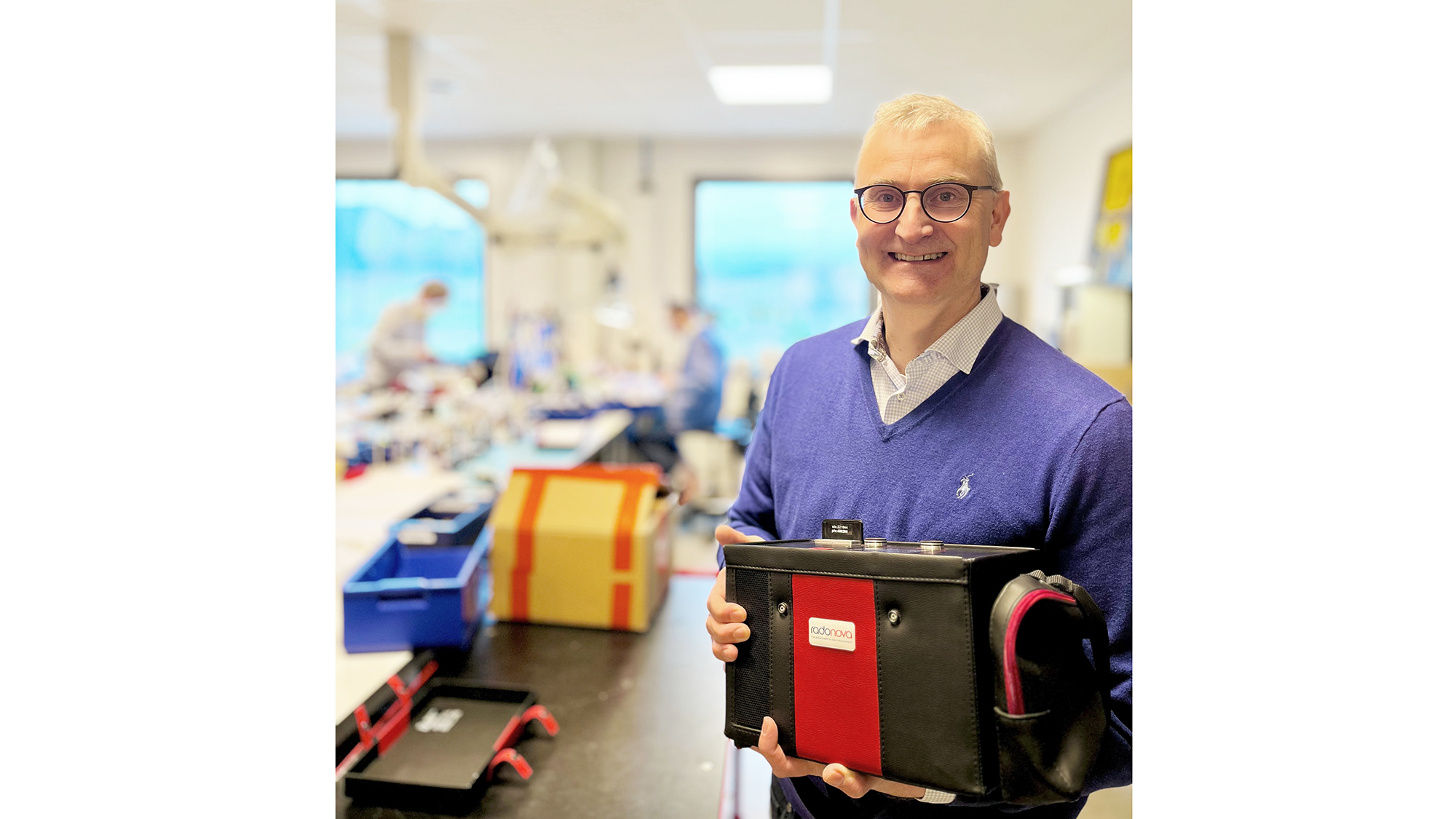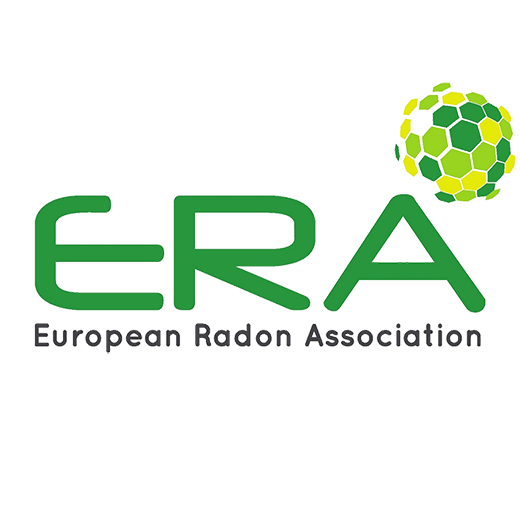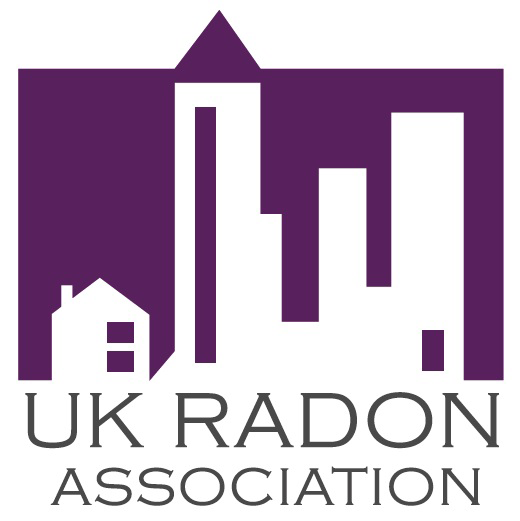Uppsala-based Radonova has been commissioned to manufacture a new highly sensitive radon instrument. The instrument, ARMON, was developed by the Technical University of Barcelona (UPC) and will be manufactured under license. With the new instrument, it is possible to measure radon levels in outdoor air with great precision, even when the levels are very low.
Several different techniques helping researchers understand how the climate is changing are based on the use of “tracers”. Radon is an inert gas (does not chemically react with other substances), which makes it an excellent tracer for measuring other pollutants in the atmosphere like carbon dioxide (CO2).
Radon is most known for causing lung cancer when at elevated levels in our indoor environments. Radon also exists in our outdoor environments but in very low concentrations. The ARMON is capable of measuring very low radon levels in the atmosphere.
Radonova’s expertise is being used in a new context
Radonova has a long tradition of working with radon measurement and is currently a global leader in the field. The company offers various detectors, instruments, applications, and services that can be used to measure radon in different contexts and environments.
“In most cases, we work with indoor radon measurement where harmful high radon levels can occur through various types of leakage. That we now have the trust to manufacture a precision instrument like ARMON for outdoor measurement makes us very proud. It feels very valuable to contribute our expertise in radon measurement even in this context. Issues related to sustainability and climate change are also high on our agenda,” comments Karl Nilsson, CEO of Radonova Laboratories.
How ARMON will be used
“There are different types of networks for measuring radioactive emissions from nuclear power plants and from nuclear weapons testing. Measurement of the radioactive radon levels in the atmosphere provides an understanding of how greenhouse gases spread. With this, ARMON becomes a new tool in today’s global warming issues,” says Radonova’s Dag Sedin, senior advisor and product manager at Radonova.
ARMON will be used in the ICOS network of measurement stations. ICOS stands for “Integrated Carbon Observation System” which is a European research infrastructure aimed at measuring, monitoring, and understanding the carbon cycle in the Earth’s atmosphere, land, and sea. Its focus is on investigating and quantifying the exchange of carbon dioxide and other greenhouse gases between different parts of the environment, as well as assessing the role of carbon dioxide in climate change. ICOS requires extremely high quality for an instrument to be used at the stations. ARMON meets these requirements and is approved by ICOS.
